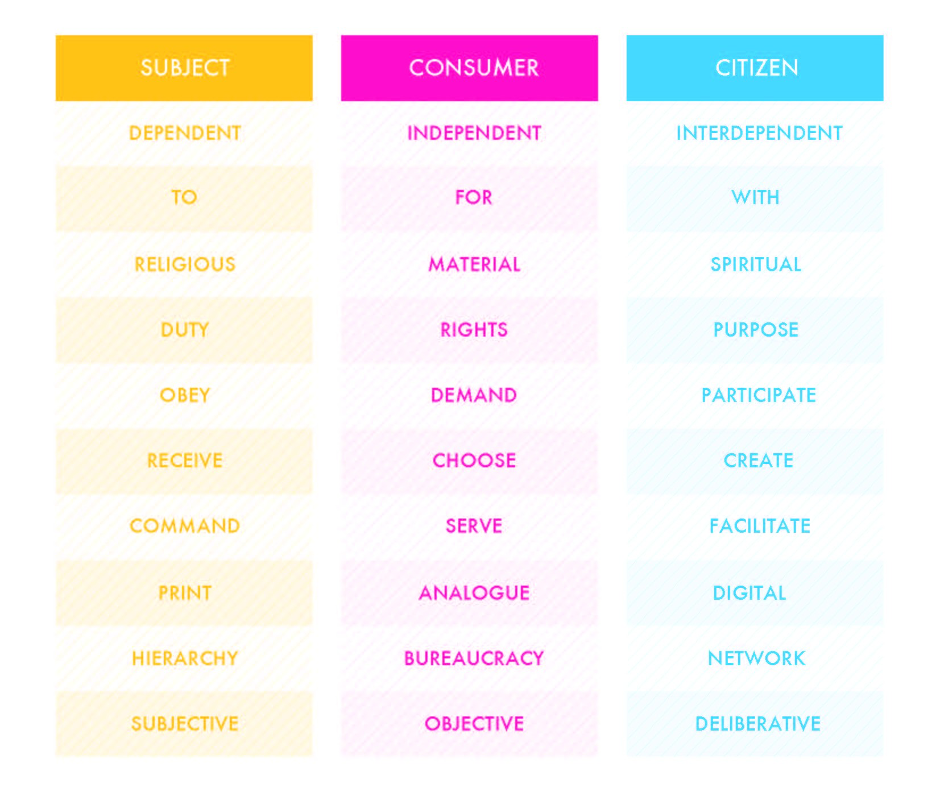Citizen Lethbridge
1 March 2020
I’m sitting in a café waiting to go to the TedX Cardiff Conference co-organised by one of our associates Richard Strudwick with the support of the Cardiff School of Journalism, Media and Cultural Studies. I’ve been working too much lately and I did wonder whether I should lose my Sunday with my daughter to go to another work related type event but in the end I had to deliver some emergency fruit and pastries to appropriately welcome an Indian delegation studying with us next week so I seemed doomed to work regardless! Plus, it’s a rare treat to be able to spend some time thinking about interesting things without the constant email ding ding ding that haunts my everyday working life. I’ll make it up to her. :/
I’ve had some really big breakthrough moments at conferences as well, so am always a fan of opening myself up to interesting new perspectives and was really grateful to Richard for offering me a chance to attend. One important event that I attended was many moons ago was to hear Professor Mark Moore from Harvard’s Kennedy School of Government give a talk about Public Value in the dungeons of Cardiff Castle (very dramatic) organized by Cardiff Met University. Listening to Mark, a lightbulb came on and I knew that his “public value” concept was a way of explaining and exploring the complexities of applying lean thinking within public services. You see lean is a methodology which is completely focused on customer value (sooo many people and organisations completely forget this by the way, but that’s another story) yet within public services understanding who your customers are and what it is they want from you can be really quite complicated.
Professor Mark Moore started to describe value within the criminal justice system in order to explain the differences and tensions experienced by public sector managers. You might think that the victim of the crime would be the ‘customer’ in lean terms, someone who deserves justice and security, but Mark reminded us that the accused has ‘customer rights’ too. They deserve to be heard fairly and honestly, for their fundamental human rights to be respected, regardless of what they may or may not have done. Other players within this complicated dynamic involve ‘the taxpayer’ who whilst hopefully sensitive to the victim and accused’s needs, does not want transactions to occur with infinite costs to themselves. They want justice for all as affordably as possible. Political parties involved within the arena are ‘customers’ too .. and powerful ones. Whilst the ideal is that they are perfectly aligned to the public voice, that’s not always the case and so they can be misaligned to those directly involved and those ultimately paying for what’s involved.
So yes, complicated and potentially conflicted. A thousand times more problematic than the “hmm which car shall I buy?” decision making involved within commercial value. Moore tries to help public sector managers better understand the juggling act that they find themselves in confirming that their job is to manage the chaos. Inevitably their achievements will always be imperfect to some extent as a consequence. His “Strategic Triangle” model is a helpful way to think about the challenges that confront a public sector manager. In order to negotiate the creation of public value managers must navigate the: ‘task environment’ – a combination of what the public wants and whether power will let that happen; the ‘authorizing environment’ – whether power and capability will come together to enable something to happen and lastly the ‘value chain’ how processes and system capability actually deliver what the public desires.
There’s more to it than a picture of course, but sometimes all that is required is a lens to look through to help you better understand what you’re up against. The simplicity of the model juxtaposed with its ultimate complexity helps public sector managers to think through all which is before them.
I’m finishing this blog following TedXCardiff now and my key takeaway from the day was from Jon Alexander and it was amazingly in tune with public value (*lucky blog break alert*) He talked about the move from the ye olden days of a ‘subject’ society of conformity and how this was replaced with the ‘consumer’ society of needing and demanding services and products and how now we needed to move to a society of ‘citizens’, cocreating networks of aligned powers of togetherness. Engaging with the world as a citizen of the world could help us to refocus on solving the problems of the world. It was again, another really interesting way of looking at life that sparks ideas and new thinking.

Jon Alexander
So I’m glad I took some time out to think, today has reminded me that I really need to build more time and space to do so.
- Lifetime Loyalty and Taylor Swift
- Looking at Things Differently
- Networking Noodles
- Addicted to Truth
- Designs on Service Design
- The Multiple Joys of Universal Design
- Hungry Cultures
- Event Lean
- The Traffic Analogy
- Moving on Up
- Rosé Cava Revolution?
- Powerpoint Sneaky Lean
- Writing about Writing
- ChatGPT Response: Exploring the Art of Expression: Unveiling the Magic of Writing in the Style of Sarah Lethbridge
- Help to Grow Coldplay Style
- Caring IS Everything!
- Institutional Flapping
- “Just Do the Next Right Thing”
- Trust Thermoclines
- Organisational Tempo
- The Inaugural Lethbridge Customer Service Awards
- Vaccine Lean – The Dawn of the Water Spider
- The Queen and Lean
- Decisions, Decisions, Decisions
- Peaceful Protest
- Tesla Tales
- Back to Reality!
- Carrots, Sticks and Buckets of Time Tricks
- The Great Pandemic Pause
- Organisational Therapy
- Late Night Wordleing
- Vaccine Lean
- Chief Letters of Complaint Officer
- AMBAZING Accreditation!
- My Big Lean Head
- [Let us] Help [you] to Grow: Management
- The Love Island Blog
- More Haste, Less Speed
- The Power of Persistence
- Brain Training
- July 2024 (1)
- June 2024 (1)
- May 2024 (1)
- March 2024 (1)
- February 2024 (2)
- December 2023 (2)
- October 2023 (2)
- September 2023 (1)
- July 2023 (3)
- June 2023 (1)
- May 2023 (1)
- April 2023 (1)
- March 2023 (1)
- February 2023 (1)
- January 2023 (1)
- November 2022 (1)
- October 2022 (2)
- August 2022 (2)
- July 2022 (1)
- May 2022 (2)
- April 2022 (1)
- February 2022 (1)
- January 2022 (1)
- December 2021 (2)
- November 2021 (1)
- October 2021 (1)
- September 2021 (1)
- August 2021 (1)
- July 2021 (1)
- May 2021 (2)
- April 2021 (1)
- March 2021 (1)
- January 2021 (1)
- December 2020 (1)
- October 2020 (3)
- August 2020 (1)
- June 2020 (2)
- April 2020 (1)
- March 2020 (1)
- February 2020 (1)
- December 2019 (2)
- October 2019 (1)
- September 2019 (1)
- August 2019 (1)
- July 2019 (1)
- June 2019 (1)
- February 2019 (3)
- October 2018 (1)
- September 2018 (1)
- March 2018 (10)
- April 2016 (1)
- January 2015 (3)
- July 2014 (9)
- September 2013 (1)

